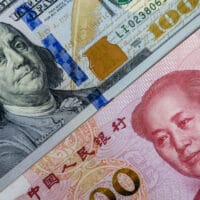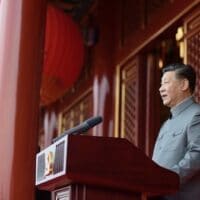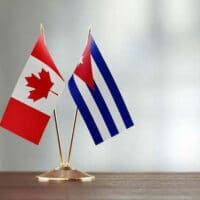-
Canadian imperialism and the underdevelopment of Burkina Faso
Canadian mining companies own $2.5 billion of Burkina Faso’s gold, and the country is one of the most poverty-stricken in Africa.
-
People working a minimum wage job can’t afford rent anywhere in the U.S.
Over 40% of Black and Latinx households pay more than 30% of their income on rent, compared with 25% of white households.
-
Serve the People: The eradication of extreme poverty in China
On 25 February 2021, the Chinese government announced that extreme poverty had been abolished in China, a country of 1.4 billion people. This historic victory is a culmination of a seven-decade-long process that began with the Chinese Revolution of 1949.
-
Shoplifting is big news; stealing millions from workers is not
Urban crime is the golden child of local media, as recent FAIR coverage (6/21/21) has shown. But as FAIR’s Julie Hollar recently noted, the amount of attention given to a topic does not always reflect the seriousness of the situation.
-
Billionaire dynasties: vampires on humanity
The first decades of the 21st century have been a gilded age for the world’s super-rich. While the mass of humanity has struggled through successive economic crises, accelerating climate and environmental breakdown and now a devastating global pandemic, the billionaire class’s wealth has piled up to ever more dizzying heights.
-
China and the supply chain: a comment on the June 2021 White House review
Contrary to rhetoric from Democrats and Republicans, the U.S. has an economic interest in trade and peace with China
-
Women everywhere in the World are squeezed into a tight corner
Between 30 June and 2 July 2021, the United Nations and other multilateral organisations held the Generation Equality Forum in Paris (France).
-
China pulls itself out of poverty 100 years into its revolution
On February 25, 2021, China’s President Xi Jinping announced that his country of 1.4 billion people had pulled its people out of poverty as it is defined internationally.
-
Kwame Nkrumah and imperialist finance in Africa today
More than half a century after Kwame Nkrumah first articulated his magisterial critique of neocolonialism, Scott Timcke argues his critique remains just as relevant in the analysis of present-day developments of capitalism in Africa.
-
Cuba thanks Canadian entrepreneurs´ trust despite U.S. blockade
Cuba thanked Canadian entrepreneurs who do business with the country despite the economic, commercial and financial blockade imposed by the United States on Cuba, the Ministry of Foreign Trade and Foreign Investment (MINCEX) reported.
-
Digital Money Beyond Blockchain with Rohan Grey
In this episode, we’re joined by Rohan Grey (@rohangrey), President of the Modern Money Network, Director of the National Jobs for All Coalition, Research Fellow at the Global Institute for Sustainable Prosperity, and JSD student at Cornell Law school. Our conversation is dedicated to Rohan’s current work on the political, economic, and cultural implications of money’s digital future.
-
Brazil suspends Covaxin contract as scandal becomes too hot for Bolsonaro
An invoice for advance payment of $45 million raised by the offshore partner of Bharat Biotech is certain to become the reason for the impending cancellation of the contract.
-
Capitalism is on life support. We have a decision to make
Canadians won’t settle for a return to how things were before the pandemic.
-
Outrage at ProPublica tax leaks underscores their importance
The report doesn’t show illegal activity; that’s what makes it so damning.
-
Paint Your Town Red: How Preston Took Back Control and Your Town Can Too
In this timely book, Matthew Brown and Rhian E. Jones explore new forms of democratic collectivism across the UK, writes Hilary Wainwright.
-
The Techfare state: The ‘new’ face of neoliberal state regulation
recent article in the New York Times takes aim at ‘How Big Tech Won the Pandemic’, highlighting how in the last year alone, Amazon, Apple, Google, Microsoft, and Facebook posted a combined revenue of more than $1.2 trillion.
-
Powerful states push tax race to the bottom
Last week, the largest rich countries, home to most major transnational corporations (TNCs), agreed to a global minimum corporate income tax (GMCIT) rate. But the low rate proposed and other features will deprive developing countries of their just due yet again.
-
Learning from history: community-run child-care centers during World War II
We face many big challenges. And we will need strong, bold policies to meaningfully address them. Solving our child-care crisis is one of those challenges, and a study of World War II government efforts to ensure accessible and affordable high-quality child care points the way to the kind of bold action we need.
-
In workplace rights debate, who’s looking out for China’s interns?
Fueled by pandemic restrictions and a glut of qualified applicants, competition for internship slots is growing fiercer all the time.
-
How billion-dollar foundations fund NGOs to manipulate U.S. foreign policy: A case study from Nicaragua
U.S. foreign policy is increasingly promoted by billionaire-funded foundations. The neoliberal era has created individuals with incredible wealth who, through “philanthropy,” flex their influence and feel good at the same time.




















